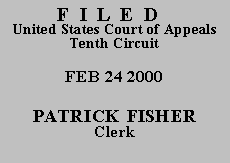

| UNITED STATES OF AMERICA,
vs.
JESSE JONES, JR. |
|
In 1983, Gerald Isaacs, a Tulsa police officer, was involved in the investigation of narcotics cases. He testified that for several months in 1983 he worked with confidential informant Roy Lee Dunn. According to the officer, Dunn provided him with certain information about Mr. Jones' involvement in narcotics activity. The officer then relayed this to FBI Agent Ronald Bell, who used the information as the basis for an affidavit to obtain a search warrant for Mr. Jones.
A dispute about this affidavit arose in 1989 when the informant was called by Mr. Jones as a witness in an IRS tax proceeding. During the scope of this proceeding, the informant testified that he did not even know the officer and had never given him any information relating to Mr. Jones. The Franks hearing conducted by the court can be summarized as follows: the officer testified that he had used the informant in the past and had no reason to question his reliability; the FBI agent testified that he had used information from the officer before and had no reason to question his reliability; and the informant testified that any information he had provided to the Tulsa Police department was false. Based upon inconsistencies in his testimony, the district court specifically found that the informant was not a credible witness and denied the § 2255 motion.
We review the district court's conclusions of law de novo and its findings of fact for clear error. See United States v. Cox, 83 F.3d 336, 338 (10th Cir. 1996). The trial court found that the informant's testimony was not credible and Mr. Jones does not direct us to any evidence that this finding was clearly erroneous. Therefore, Mr. Jones' claim must rest upon the testimony of the other witnesses, specifically the officer and the FBI agent. Without any evidence that the affidavit was based upon "deliberate falsehood or . . . reckless disregard for the truth," the claim must fail. Franks, 438 U.S. at 171.
Our resolution of the Franks issue is also relevant to Mr. Jones first claim of ineffective assistance based on trial counsel's failure to call the informant as a witness. "Generally, the decision whether to call a witness rests within the sound discretion of trial counsel." Jackson v. Shanks, 143 F.3d 1313, 1320 (10th Cir. 1998). Our holding that the affidavit was adequate to support the search warrant dispels Mr. Jones argument that seized evidence would have been excluded had the informant testified at the suppression hearing. Therefore, Mr. Jones has failed to show that he was prejudiced in any way and his first ineffective assistance claim must fail.
In his second ineffective assistance claim, Mr. Jones asserts that appellate counsel was deficient in failing to challenge the sufficiency of the evidence on his continuing criminal enterprise conviction, 21 U.S.C. § 848. Specifically, Mr. Jones asserts that the government failed to prove that he had a leadership role in regards to "five or more other persons." § 848(c)(2)(A). After a review of the entire record, the district court found that the government had adequately demonstrated this element of the crime. On this appeal, Mr. Jones fails to allege any prejudice from counsel's actions; he merely states that he "was entitled to have this argument raised on direct appeal." Aplt. Br. at 22. Therefore, this claim must also fail.
Finally, Mr. Jones claims that appellate counsel was ineffective for failing to challenge the continuing criminal enterprise jury instructions given by the trial court. He relies upon the Supreme Court's decision in Richardson v. United States, 119 S.Ct. 1707 (1999) as support for this proposition. Appellate counsel was not ineffective for failing to anticipate an issue based on a case decided over ten years after the appeal became final. Moreover, Mr. Jones has once again failed to demonstrate any prejudice from this action.
Having disposed of Mr. Jones' claims of ineffective assistance, we conclude that the district court did not abuse its discretion in not holding a hearing on these claims. See United States v. Whalen, 976 F.2d 1346, 1348 (10th Cir. 1992).
We DENY the request for a certificate of appealability, DENY Mr. Jones' motion to file a pro se supplemental brief and DISMISS the appeal.
Entered for the Court
Paul J. Kelly, Jr.
Circuit Judge
*. This order and judgment is not binding precedent, except under the doctrines of law of the case, res judicata, and collateral estoppel. This court generally disfavors the citation of orders and judgments; nevertheless, an order and judgment may be cited under the terms and conditions of 10th Cir. R. 36.3.
**. After examining the briefs and the appellate record, this three-judge panel has determined unanimously that oral argument would not be of material assistance in the determination of this appeal. See Fed. R. App. P. 34(a); 10th Cir. R. 34.1 (G). The cause is therefore ordered submitted without oral argument.